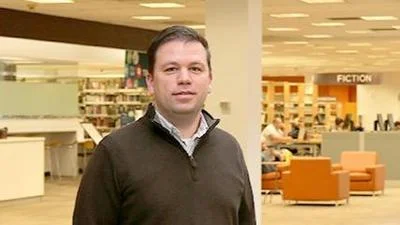The shutdown of schools due to COVID-19 was extended too long, a legislative candidate said. | Ivan Aleksic/Unsplash
The shutdown of schools due to COVID-19 was extended too long, a legislative candidate said. | Ivan Aleksic/Unsplash
Charles Hutchinson, a Republican candidate for Illinois state representative in District 18, believes the shutdown of schools due to COVID-19 lasted too long.
"The initial closing in March of 2020, parents understood," the candidate told North Cook News. "Of course, the line at the time was that it would be two weeks, but even as we were picking our kids up from school that day (we have three) many parents were outwardly expressing thoughts that it was likely schools would be closed the remainder of the year. The parents I spoke with were understanding and saw it as necessary out of an abundance of caution."
But, opinions started changing when schools stayed closed the following fall, Hutchinson said.
"Many parents had different thoughts about closed schools," he said. "Most saw it as unnecessary. Most saw it as a power play by unions. Most felt that children from lower-income families, who were being kept out of the classrooms, were being robbed of an education. Many noted that while 'their child was fine' or 'would be fine,' typically because they had access to computers and internet, they worried for those who did not have that access."
Future decisions on school closures should be made at the local level, Hutchinson said.
"We saw, here in IL, that different communities have different levels of risk tolerance and different levels of spread," he said. "Keeping it at the local level allows the community and the parents to have a more direct say in how their school operates for the betterment of their children. Local decision-making can also be more flexible and quicker to respond to a changing environment and changing situations. As an elected representative, I will see to it that local school districts have that authority and not Springfield."
A Unicef report from October 2021 found that government-mandated lockdowns and school closures negatively impacted children, leading to more fear, stress, anxiety, depression, alcohol and drug abuse, loss of learning, and poor physical activity and sleeping habits.
Total enrollment in pre-K-12 schools in Illinois declined by 3.6% – roughly 70,000 students – during the 2020 to 2021 school year, according to Capitol News Illinois. Chronic absenteeism increased during the same year, with 22.8% of all Illinois students missing 10% or more of all school days.
"We know from national studies from the (U.S. Centers for Disease Control and Prevention) that school districts serving primarily Black and Hispanic students provided the least access to in-person learning last year," Brenda Dixon, research and evaluation officer for the Illinois State Board of Education (ISBE), said. "We suspect that less access to in-person learning contributed to lower engagement among Black and Hispanic students."
The number of students who exhibited grade-level competence in math and English/language arts decreased, Capitol News Illinois reported. Nearly 18% fewer students demonstrated proficiency in math and 16.6% fewer students demonstrated proficiency in English.
School districts that offered more in-person learning saw smaller declines in enrollment than schools that used mostly remote learning, according to the Illinois Policy Institute.
The ISBE in March announced a $17 million grant to establish a supplemental learning program for students impacted by learning loss due to school closures, a news release from the agency noted. The program will be geared specifically towards low-income students.






 Alerts Sign-up
Alerts Sign-up